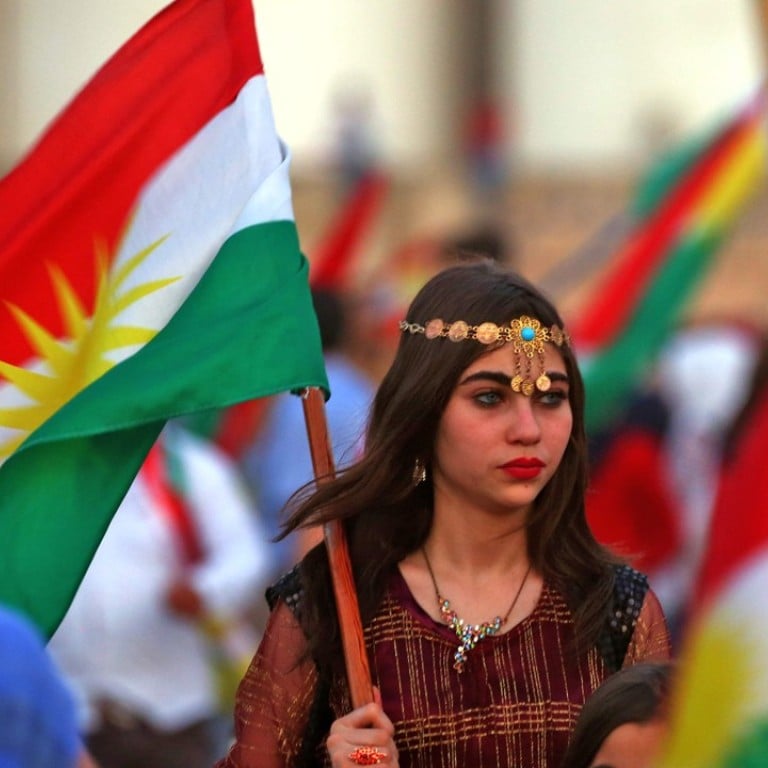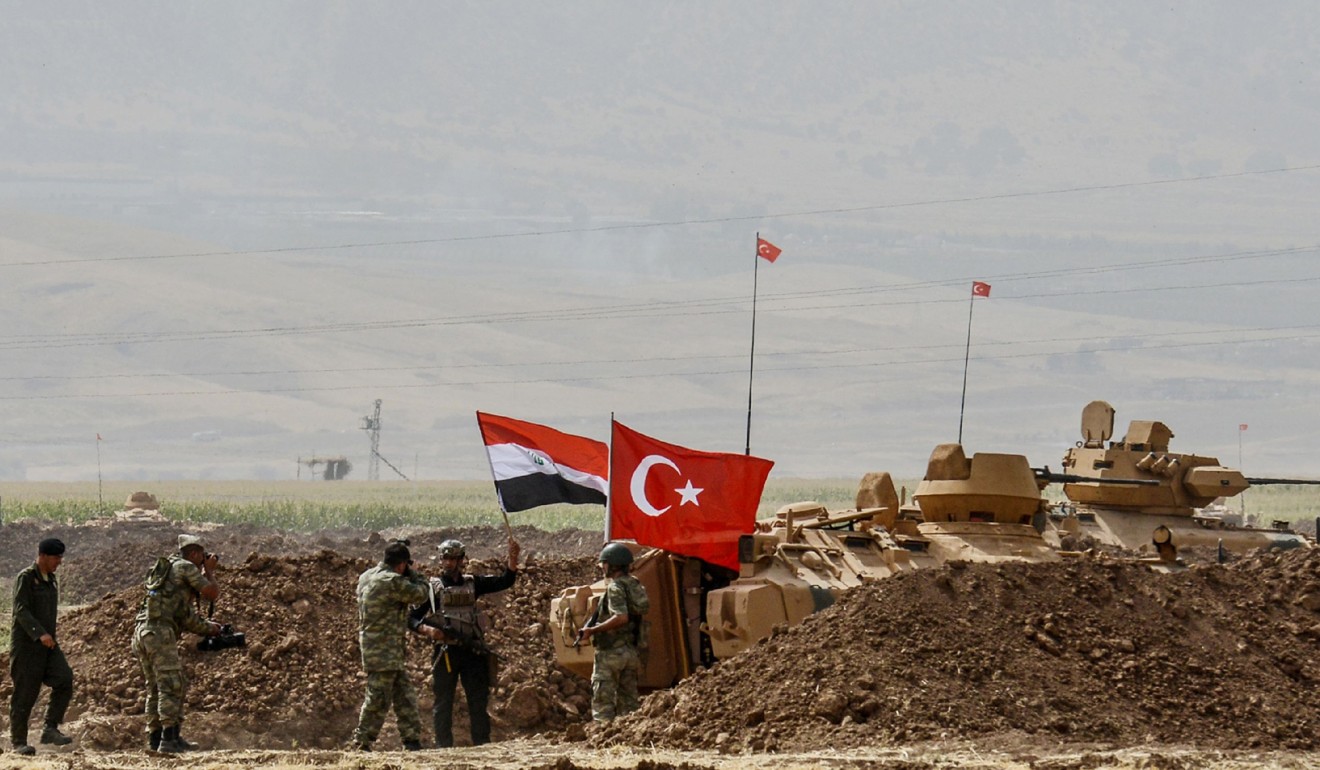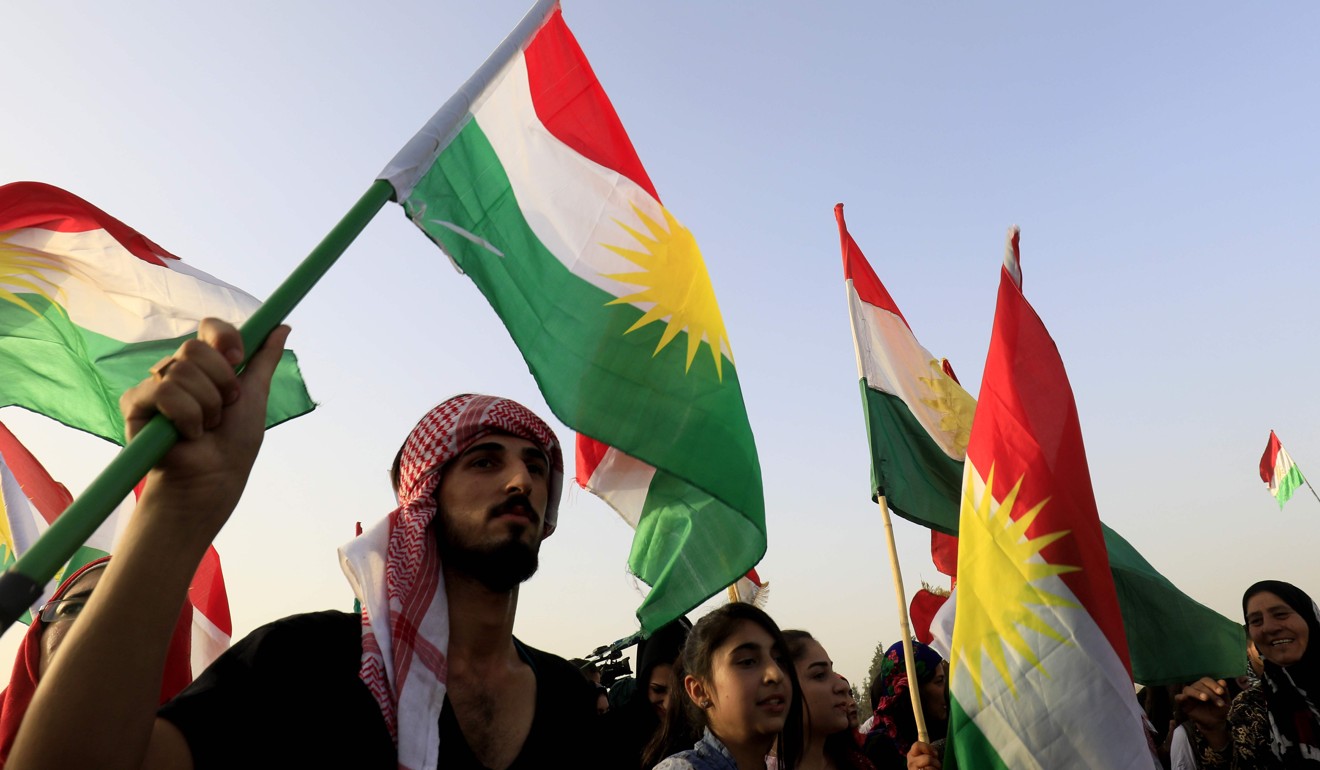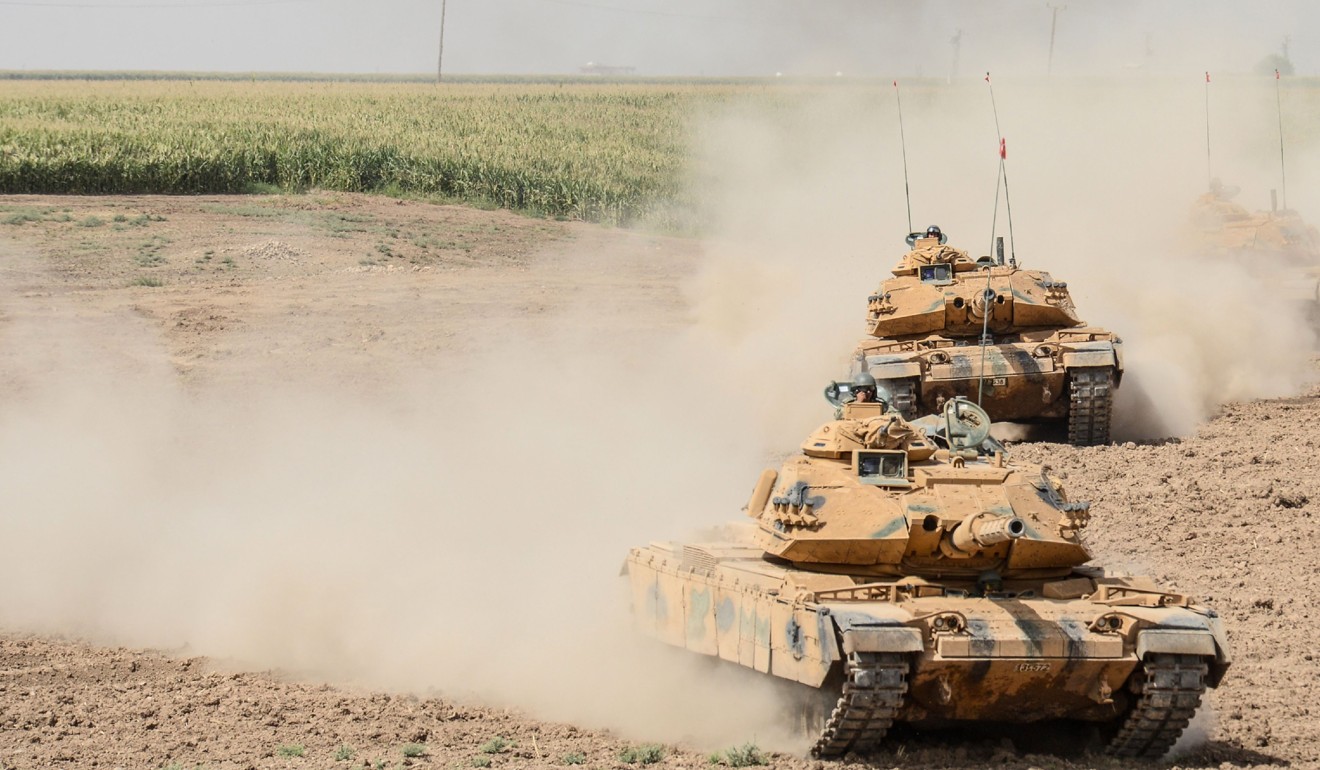
Pro-independence Kurds claim referendum victory
The apparent win for ‘yes’ campaigners came in defiance of opposition from Baghdad and the US
Iraqi Kurdish leader Massoud Barzani said on Tuesday that Kurds had voted “yes” to independence in a referendum held in defiance of the government in Baghdad and which had angered their neighbours and their US allies.
The Kurds, who have ruled over an autonomous region within Iraq since the 2003 US-led invasion that toppled Saddam Hussein, consider Monday’s referendum to be a historic step in a generations-old quest for a state of their own.
Iraq considers the vote unconstitutional, especially as it was held not only within the Kurdish region itself but also on disputed territory held by Kurds elsewhere in northern Iraq.
The United States, major European countries and neighbours Turkey and Iran strongly opposed the decision to hold the referendum, which they described as destabilising at a time when all sides are still fighting against Islamic State militants.
In a televised address, Barzani said the “yes” vote had won and he called on Iraq’s central government in Baghdad to engage in “serious dialogue” instead of threatening the Kurdish Regional Government with sanctions.
The Iraqi government earlier ruled out talks on Kurdish independence and Turkey threatened to impose a blockade.
“We may face hardship but we will overcome,” Barzani said, calling on world powers “to respect the will of millions of people” who voted in the referendum.
Earlier, the Kurdish Rudaw TV channel said an overwhelming majority, possibly over 90 per cent, had voted “yes”. Final results are expected by Wednesday.
Celebrations continued until the early hours of Tuesday in Arbil, capital of the Kurdish region, which was lit by fireworks and adorned with Kurdish red-white-green flags. People danced in the squares as convoys of cars drove around honking their horns.
In ethnically mixed Kirkuk, where Arabs and Turkmen opposed the vote, authorities lifted an overnight curfew imposed to maintain control. Kirkuk, located atop huge oil resources, is outside the Kurdish region but controlled by Kurdish forces that occupied it in 2014 after driving out Islamic State fighters.
In neighbouring Iran, which also has a large Kurdish minority, thousands of Kurds marched in support of the referendum, defying a show of strength by Tehran which flew fighter jets over their areas.
The referendum has fuelled fears of a new regional conflict. Turkey, which has fought a Kurdish insurgency within its borders for decades, reiterated threats of economic and military retaliation.
Barzani, who is president of the Kurdish Regional Government, has said the vote is not binding, but meant to provide a mandate for negotiations with Baghdad and neighbouring countries over the peaceful secession of the region from Iraq.
Baghdad said there would be no such talks.
“We are not ready to discuss or have a dialogue about the results of the referendum because it is unconstitutional,” Iraqi Prime Minister Haidar al-Abadi said on Monday night.
Abadi ordered the Kurds to hand over control of their airports to the central government within three days or face an international embargo on flights.

Abadi, a moderate from Iraq’s Shiite Arab majority, is coming under pressure at home to take punitive measures against the Kurds. Hardline Iranian-backed Shiite groups have threatened to march on Kirkuk.
“We as Popular Mobilisation would be fully prepared to carry out orders from Abadi if he asks to liberate Kirkuk and the oilfields from the separatist militias,” said Hashim al-Mouasawi, a spokesman for the al-Nujabaa paramilitary group.
The Kurds, who speak their own language related to Persian, were left without a state of their own when the Ottoman Empire crumbled a century ago. Around 30 million are scattered in northern Iraq, southeastern Turkey and parts of Syria and Iran.
The autonomous region they control in Iraq is the closest the Kurds have come in modern times to a state. It has flourished, largely remaining at peace while the rest of Iraq has been in a continuous state of civil war for 14 years.
Since the fall of Saddam, they have had to carefully balance their ambitions for full independence with the threat of a backlash from their neighbours and the reluctance of Washington to redraw borders.
In the past four years they achieved a measure of economic independence by opening a route to sell oil through pipelines to a port in Turkey. But that still leaves them at the mercy of Ankara, which draws a firm line at formal independence.
The Kurds said the referendum acknowledges their contribution in confronting Islamic State after it overwhelmed the Iraqi army in 2014 and seized control of a third of Iraq.
Voters were asked to say ‘yes’ or ‘no’ to the question: “Do you want the Kurdistan Region and Kurdistani areas outside the (Kurdistan) Region to become an independent country?”
Iraq’s Kurds have been close allies of the United States since Washington offered them protection from Saddam in 1991. But the United States has long encouraged the Kurds to avoid unilateral steps so as not to jeopardise the stability of Iraq or antagonise Turkey.
The US State Department said it was “deeply disappointed” by the decision to conduct the referendum but Washington’s relationship with region’s people would not change.
Asked about the referendum, White House spokeswoman Sarah Sanders said on Monday: “We hope for a unified Iraq to annihilate IS (Islamic State) and certainly a unified Iraq to push back on Iran.”
The European Union regretted that the Kurds had failed to heed its call not to hold the referendum and said Iraqi unity remained essential in facing the threat from Islamic State.

The Kremlin said Moscow backed the territorial integrity of countries in the region. Unlike other powers, Russia had not directly called on the Kurds to cancel the referendum. Moscow has quietly pledged billions of dollars in investment in the past year, becoming the biggest funders of the Kurds.
Iran banned flights to and from Kurdistan on Sunday, while Baghdad asked foreign countries to stop oil trading with the Kurdish region and demanded that the KRG hand over control of its international airports and border posts with Iran, Turkey and Syria.
Iranian Major General Yahya Rahim Safavi, a top adviser to the Supreme Leader, called on “the four neighbouring countries to block land borders” with the Iraqi Kurdish region, according to state news agency IRNA. Tehran supports Shiite Muslim groups that are powerful in Baghdad.

Syria, embroiled in a civil war and whose Kurds are pressing ahead with their own self-determination, also rejected the referendum.
KRG Prime Minister Nechirvan Barzani said he hoped to maintain good relations with Turkey.
“The referendum does not mean independence will happen tomorrow, nor are we redrawing borders,” he said in Arbil on Monday. “If the ‘yes’ vote wins, we will resolve our issues with Baghdad peacefully.”

